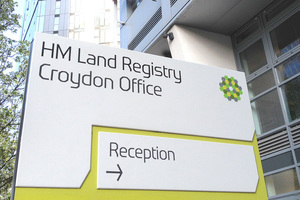- Developers and product manufacturers that do not help fix the cladding scandal could be blocked from housing market
- Government puts its guarantee that no leaseholder living in medium or high-rise buildings will have to pay a penny for the removal of cladding into law
- New powers will allow cladding companies to be sued and subject to fines for defective products
- Protections for leaseholders extended to cover other fire safety defects
Tough new measures that will force industry to pay to remove cladding and protect leaseholders from exorbitant costs have been unveiled by Secretary of State for Levelling Up Michael Gove today (14 February 2022).
For those in industry not doing the right thing, the government will be able to block planning permission and building control sign-off on developments, effectively preventing them from building and selling new homes.
The proposals will see the industry pay to fix historical problems, freeing hundreds of thousands of innocent leaseholders from shouldering an unfair financial burden while also enforcing a common-sense approach to avoid unnecessary work.
The Department for Levelling Up, Housing and Communities remains in ongoing discussions with industry leaders – who agree that leaseholders should not pay cladding removal costs – with progress being made. However, for those unwilling to make commitments, the Secretary of State has been clear he is ready to act.
Reflecting the scale of the problem, the government will also be able to apply its new building safety levy to more developments, with scope for higher rates for those who do not participate in finding a workable solution.
The government hopes to not have to use these powers; it wants responsible developers and manufacturers to operate freely and with confidence, to help deliver the homes people need. If they do not act responsibly, they must face commercial and financial consequences.
Alongside further leaseholder legal protections, courts will also be given new powers to stop developers using shadowy shell companies, which make them difficult to trace or identify who they are run by, so they can avoid taking responsibility for their actions.
If passed by Parliament, these amendments to the Building Safety Bill will be brought into law.
Secretary of State for Levelling Up Michael Gove said:
It is time to bring this scandal to an end, protect leaseholders and see the industry work together to deliver a solution.
These measures will stop building owners passing all costs on to leaseholders and make sure any repairs are proportionate and necessary for their safety.
All industry must play a part, instead of continuing to profit whilst hardworking families struggle.
We cannot allow those who do not take building safety seriously to build homes in the future, and for those not willing to play their part they must face consequences.
We will take action to keep homes safe and to protect existing leaseholders from paying the price for bad development.
Cost Contribution Orders will be able to be placed on manufacturers who have been successfully prosecuted under construction products regulations. These orders will require them to pay their fair share on buildings requiring remediation. It is wrong that, until now, a manufacturer could be found guilty of misconduct but could not be charged to fix the problems they caused in selling defective products.
Amendments to the Building Safety Bill, revealed today, will also allow building owners and landlords to take legal action against manufacturers who used defective products on a home that has since been found unfit for habitation. The power will stretch back 30 years and allow recovery where costs have already been paid out.
New clauses will also enshrine in law the commitment the Levelling Up Secretary made in the House of Commons last month that no leaseholder living in their own home, or sub-letting in a building over 11m, ever pays a penny for the removal of dangerous cladding.
If passed by Parliament, these clauses will hugely reduce the invoices that have been sent to leaseholders for taking down cladding, in some cases for over £100,000.
The provisions announced today will also go further than the package outlined last month by protecting leaseholders on non-cladding costs. Under the plans, developers that still own a building over 11m that they built or refurbished – or landlords linked to an original developer – will be required to pay in full to fix historic building safety issues in their property.
Building owners who are not linked to the developer but can afford to pay in full will also be required to put up the money to do so.
In the small number of cases where building owners do not have the resources to pay, leaseholders will be protected by a cap. The cap will be set at similar levels to ‘Florrie’s Law’ which applies to some repairs to social housing: £10,000 for homes outside London and £15,000 for homes in the capital. This will limit how much leaseholders in this scenario can be asked to pay for non-cladding costs, including waking watch charges.
Any costs paid out by leaseholders over the past 5 years will count towards the cap, meaning some leaseholders will pay nothing more. We will carry out further consultation with parliamentarians and stakeholders before finalising this to ensure that we deliver the right result for leaseholders.
The provisions will protect leaseholders and encourage a more proportionate approach to fixing buildings. Currently, building owners can simply pass all costs on to leaseholders, with no incentive to hold back on unnecessary remediation work that has brought misery to leaseholders.
Today’s package, alongside the duties in the wider Bill, will create an environment for tough, proportionate action on critical safety issues while preventing cost inflation and excessive work.
This follows the Secretary of State’s statement in January, when he set out a 4-point plan to reset the approach to building safety and give leaseholders more protection against unfair costs.
The new leaseholder protections announced today, will allow those less likely to be able to pay to be fully exempted from costs.
In the small number of cases where building owners do not have the resources to pay and the developer cannot be traced, leaseholders will have a ‘Florrie’s Law’ style backstop protection, which caps how much they can be asked to pay for non-cladding costs, including waking watch charges.
Any costs paid out by leaseholders over the past 5 years will count towards the ‘Florrie’s Law’ style caps, meaning some leaseholders will pay nothing more.
The proposed government amendments will be available on the Lords website later on Monday 14 February 2022.
They are due to be debated in the House of Lords during the Committee Stage of the Building Safety Bill which begins on Monday 21 February 2022.


